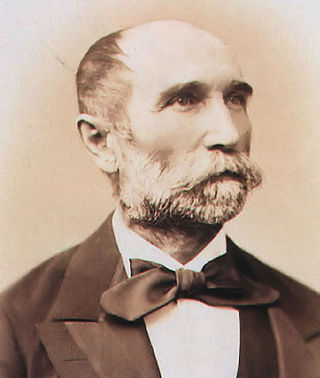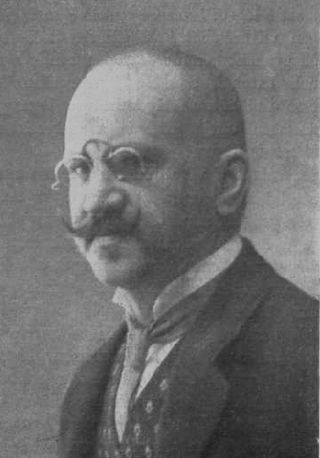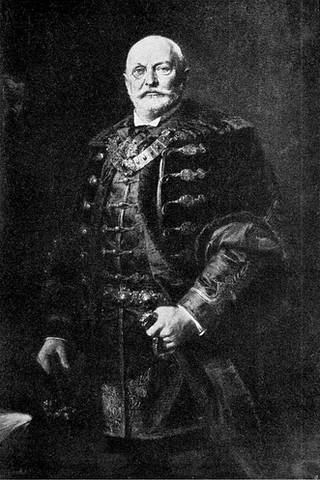| Speaker of House of Magnates | |
|---|---|
| A Mágnások Házának elnöke | |
| House of Magnates | |
| Type | Speaker |
| Member of | Diet of Hungary |
| Formation | 25 June 1848 |
| First holder | György Mailáth senior |
| Final holder | Jenő Rátz |
| Abolished | 28 March 1945 |
The Speaker of the House of Magnates (Hungarian : A Mágnások Házának elnöke) was the presiding officer of the House of Magnates, the upper chamber of the Diet of Hungary.
Contents
The House of Magnates was initially established during the Hungarian Revolution of 1848, and existed with interruptions between 1848 and 1918.




































